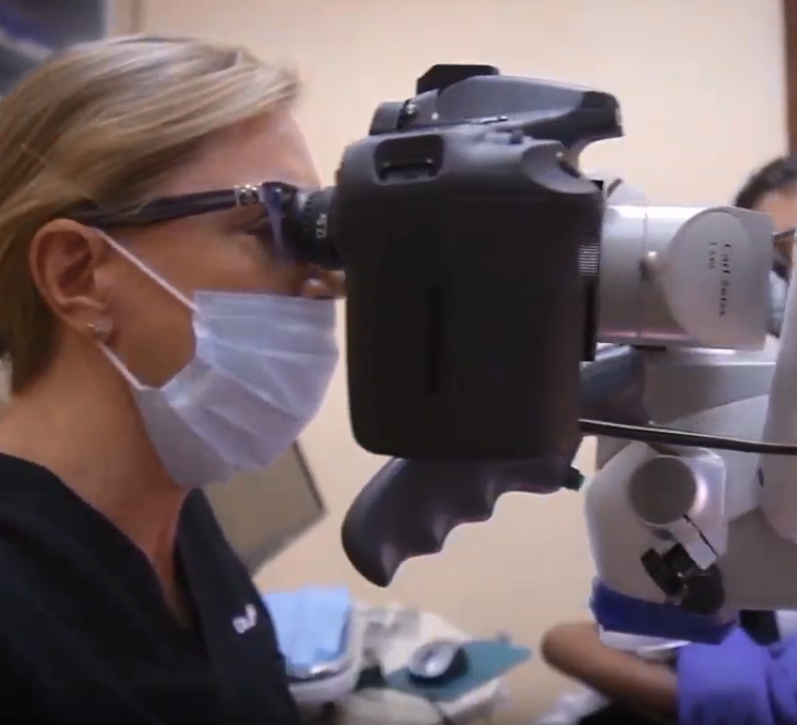As more people consider dental implants when natural teeth cannot be saved, some patients may wonder what level of discomfort to expect. This is a complex question, as some people need tooth extractions, sinus lifts, or bone grafts in conjunction with a dental implant. However, there are some general guidelines to how much pain is “normal” when you have a dental implant, and what kind of pain warrants a call to your dentist or endodontist.
When You Might Experience Pain During The Dental Implant Process
- During the implant procedure itself: This is possible, but not common, because your dentist will use the best type of anesthesia for your circumstances. This can include heavy local anesthesia and/or some type of sedation.
- After getting a dental implant: Once the anesthesia wears off, it is normal to experience swelling for the first three to four days after your operation and some pain may remain for as long as 7-10 days.
- If you had teeth extracted, a bone graft, or a sinus lift with your dental implant: All of these procedures can result in additional discomfort.
- If you experience complications during the healing process: If your post-op swelling goes away and then returns accompanied by pain, this may indicate you have an infection. Call your implant surgeon or endodontist – they may ask you return to be examined or may write you a prescription for an antibiotic.
Things You Can Do To Reduce Post-Operative Pain
- Take pain relievers as prescribed. Your dental implant provider will likely send you home with a prescription for ibuprofen or another pain reliever.
- Reduce swelling and pain with cold packs. Apply a cold pack or even a bag of frozen peas to the area of your cheek over the implant site. Avoid skin irritation by wrapping the cold pack in a thin cotton washcloth.
- Bathe the gums covering your implant with warm salt water. Do not swish! Hold the water in your mouth near the implant site, then spit it out gently. Repeat several times in a row, every few hours, for the first one to three days after your surgery.
“Dental implants can be a safe, durable, permanent solution for improving your oral health,” says Dr. Jacqueline S. Allen, an endodontist practicing at the Phoenix Endodontic Group. “Our staff can provide you with a comprehensive overview of how we can work together to minimize your pain during and after the implant surgery.”

